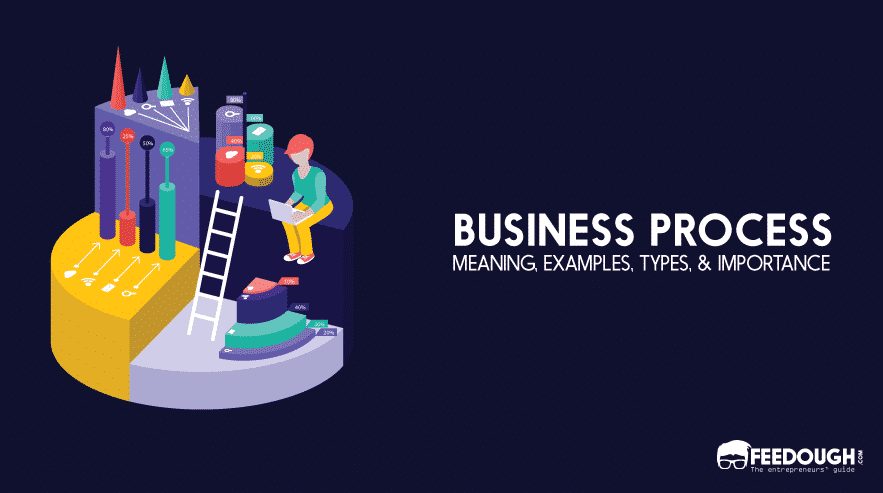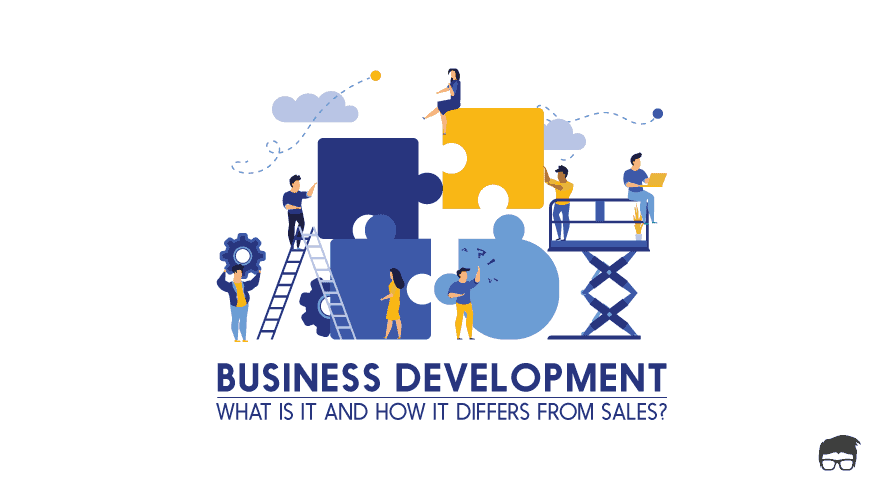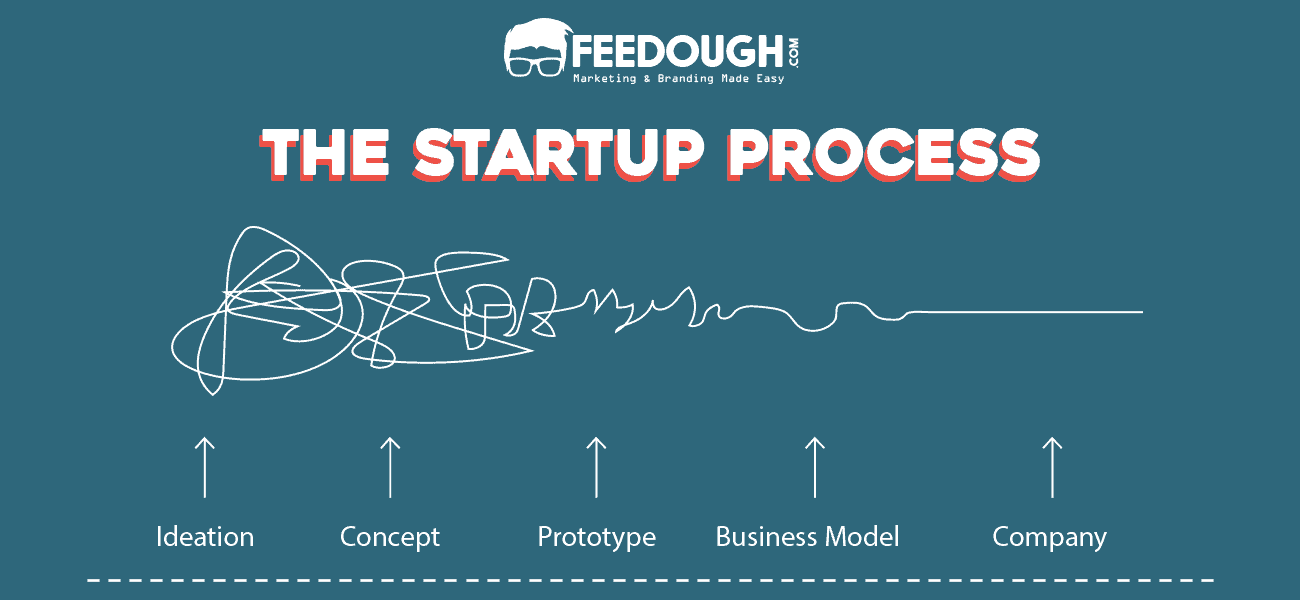The success of a business is the ultimate goal for any entrepreneur although one wrong step can become an enormous problem and it may cost a fortune to rectify that single mistake.
A business process is about those right steps which play a vital role in delivering an offering to the customers.
What Is Business Process?
A business process is a series of interlinked steps which are assigned to every stakeholder for a specific work to deliver a product or service to the customer.
Each stakeholder performs a specific task they are specialised in to achieve a concrete goal. These steps are often repeated many times by multiple users in a standardized and optimized way.
Business Process Examples
Business processes are represented as a workflow or flowchart of logical steps. To further break it down here are two examples of a business process:
A company needs to hire an eligible person for the job of a product manager –
Here are necessary steps need that to be taken in this process.
- First, the HR manager will publish an advertisement on a job portal by mentioning the required skills and qualifications for the eligible applicants.
- Once the required number of applications are received, someone from the team will contact the interested applicants and ask them to come for the interview.
- An interview will be conducted where the candidates have to pass several rounds to secure the job position.
- The most suitable candidate(s) will be selected based on the predetermined passing scores and expectations.
- The HR manager will make the selected candidate(s) sign certain documents and contracts.
- The selected candidate(s) will be trained by the assigned trainers according to the job requirements.
- Later, required tools, credentials and paperwork will be given to the new employee.
This process will be repeated in a standardized and optimized way whenever the company needs to hire a new employee.
A company which develops mobile applications is planning to launch a new IOS application.
Here are necessary steps need that to be taken in this process.
- First, market research will be conducted to find out what the market desires.
- After the research, the company will find the best efficient resources to develop the application according to the market need.
- Another market research will be conducted to validate the hypothesis of the product market fit. This will involve the release of the MVP.
- The reviews from the innovators and early adopters will be taken to refine and modify the offering further.
- After the modifications, the company will build a marketing strategy to promote the application.
- A beta version of the app will be launched to validate the revenue model and other features.
- In the final, the app will be released in the play store.
Whenever a new mobile application will be launched the same process will be repeated with some changes and reengineering.
Types of Business Process
- Primary Processes: These are the fundamental processes of a business through which a company delivers the end product to the customer. Every step involving in these processes works towards adding value to the final offering.
- Support Processes: Support processes don’t add value to the final product directly but they make an environment for primary processes to operate efficiently and effectively. These processes support the everyday operations of an organisation.
- Management processes: Management processes govern operations, corporate governance and strategic management. These processes set goals and standards which lead to the efficient and effective working of primary and support processes. Besides planning, these processes also involve monitoring and control of other business processes. Management processes are used to manage a business through strategic planning, tactical and operational planning.
Importance Of Business Process
If you can’t describe what you are doing as a process, you don’t know what you’re doing. – W. Edwards Deming
Business processes have always played a vital role in the proper functioning of an organisation and in its structure. A well planned and strategized business process will help a business in the following ways:
- Reduced expenditure and risk: a business process reduce expenditure and risk by already laying out the most efficient ways of doing the jobs considering the potential future shortcomings.
- Reduce human error: it reduces the human error by distributing tasks to people who are specialised in it.
- Improving efficiency: it enhances the productivity of a department by mapping out moves and relevant steps which are best for the business.
- More customer focused: a business process is a customer-oriented move. It continuously updates the company about the customer wants and reviews about the product/service.
- Bridging communication gaps: It bridges the communication gap between the company and its customers through reviews and market research.
- Better time management: business process improves time efficiency by developing strategies and flowcharts to minimize the time taken to do certain activities.
- Adaption of new technology: business process often keeps changing and improves over time. The company adopts new technologies to keep their feet on the ground by improving business process according to the latest technologies.
Above benefits can only be achieved if all the principles and methods are mapped out in an optimised and standardized way. The company which failed to do so will face the following problems:
- Failure to recognise any problem: a company which doesn’t focus on its business processes will often fail to recognise the exact problem that prevented it to achieve the goals due to its inability to set standardised processes.
- Low motivation in employees: due to the absence of a competent business process, the employees of the company will get demotivated as they might get placed in the departments for which they do not hold enough knowledge.
- Lack of change implementation: companies will often repeat the same errors over and over again as there will be no system to recognise the problem and to implement change in the process.
- Time-consuming efforts: without proper flowcharts and workflow, specific work will take more time to be done than normal.
- Lower efficiency: if there is no proper business process a company cannot be productive and its efficiency will be lower than a company with a proper business process. A business process increases efficiency by laying out steps and possible ways to do a task.
- High risk and increased expenditure: companies which do not have an adequate business process they often failed to see the future risks and they are also incompetent to find a cost-effective way to do a task.
After gaining the required skills and knowledge of business process, the next step should be finding the suitable BPR and BPM tools to create a process which can be repeated in several ways.
Business Process Management (BPM)
Business process management focuses on discovering, optimizing, modelling, monitoring and analysing the business activities and managing previous business processes. Its primary agenda is to manage the business process to achieve tangible and intangible goals. Business process management leads its way to other steps such as business process design and business process modelling.
Business process management often involves the use of BPM tools which adds value to a company in terms of higher productivity, reduced expenditure, better control and higher visibility.
Business process management tools are used for optimising, measuring and automating a business process. They effectively help in managing the business process. Some best BPM tools available in the market are Appian, Comidor, Processmaker and Pega.
Go On, Tell Us What You Think!
Did we miss something? Come on! Tell us what you think about our article on what is a business process in the comments section.
A startup consultant, digital marketer, traveller, and philomath. Aashish has worked with over 20 startups and successfully helped them ideate, raise money, and succeed. When not working, he can be found hiking, camping, and stargazing.




![What Is An Action Plan & How To Write It? [Ultimate Guide] ACTION PLAN](https://www.feedough.com/wp-content/uploads/2019/03/ACTION-PLAN.webp)



